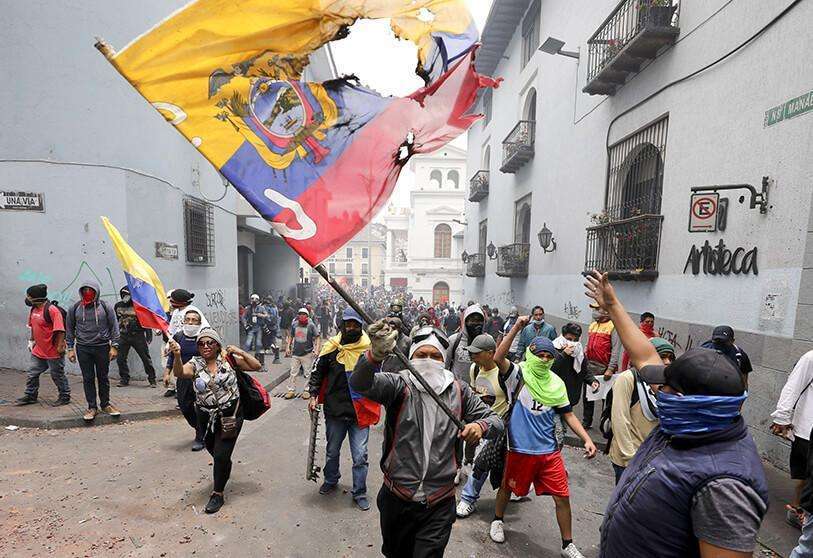Ecuador's Parliament refuses to remove Guillermo Lasso as president of the country

Ecuador is experiencing one of the most unstable moments in its recent history, after an ongoing motion of censure and two weeks of mass protests that have paralysed the country. Guillermo Lasso has been saved from impeachment, but he must continue to face massive indigenous protests that do not seem to end.
On Tuesday, Ecuador's Assembly refused to impeach President Guillermo Lasso due to the lack of votes needed for the initiative promoted by the opposition loyal to former president Rafael Correa. The Union for Hope party (UNES) obtained only 80 votes out of the 92 required to pass the motion of censure, so Lasso will remain in office thanks to the votes of the opposition Social Christian Party and the Democratic Left, as well as nine abstentions.
The proposal to remove the Ecuadorian head of state, who has barely been in the Carondelet Palace for a year, was presented on 25 June by the UNES bench, claiming that it represented "the generalised demand of the population", which demanded a call for elections. The motion of censure also had the support of the indigenous organisations that have supported the demonstrations over the last two weeks.
Agradezco el apoyo brindado por todos aquellos que buscan el bien común y la paz. Estos días han sido determinantes para el país. Ver a los ecuatorianos defender la democracia, sus trabajos y a sus familias nos demuestra que #EcuadorQuierePaz. pic.twitter.com/Cqw1UXnpUM
— Guillermo Lasso (@LassoGuillermo) June 23, 2022
President Lasso referred to them in a message and communiqué published on his Twitter account: "We defended democracy and now we must recover peace. It is clear who works for the political mafias. Meanwhile, we continue to work for Ecuador", said the publication on this social network.
The impeachment of the president is closed, but the social crisis that Ecuador is experiencing after the outbreak of protests promoted by the Confederation of Indigenous Nationalities (CONAIE) has yet to be resolved. The violence of the demonstrations, especially in the capital, Quito, has brought the whole country to a standstill in productive activity and communications, which is causing food and other goods to fail to reach the Andean region.
The protests broke out on 13 June with the start of an indefinite national strike promoted by several indigenous organisations. The main reason was inflation and the rising cost of living in the country, especially the increase in the price of fuel.
These protests continue far from finding a solution between the government and the demonstrators. On the same day that the president faced the vote on the motion of censure, a second meeting was called with the leader of CONAIE, Leónidas Iza. However, an attack on a military convoy was the justification used by the government to declare the breakdown of dialogue with the indigenous people.

President Lasso's announcement on Monday that fuel prices would be reduced by 10 cents in response to the national strike was not enough for the indigenous movements. CONAIE described the measure as "insufficient and insensitive because it does not take into account the situation of poverty faced by millions of families".
The group that has led the demonstrations for the last 15 days has shown its initiative to continue the protests, despite "persecution, criminalisation and the repressive response of the state". According to Leónidas Iza, they will continue until "we can somehow have a policy that can benefit the poor more".
Some 14,000 indigenous people have joined these protests in Ecuador with a single demand: to reduce fuel prices, which have made agricultural regions more expensive and led to the loss of harvests.
Americas Coordinator: José Antonio Sierra








